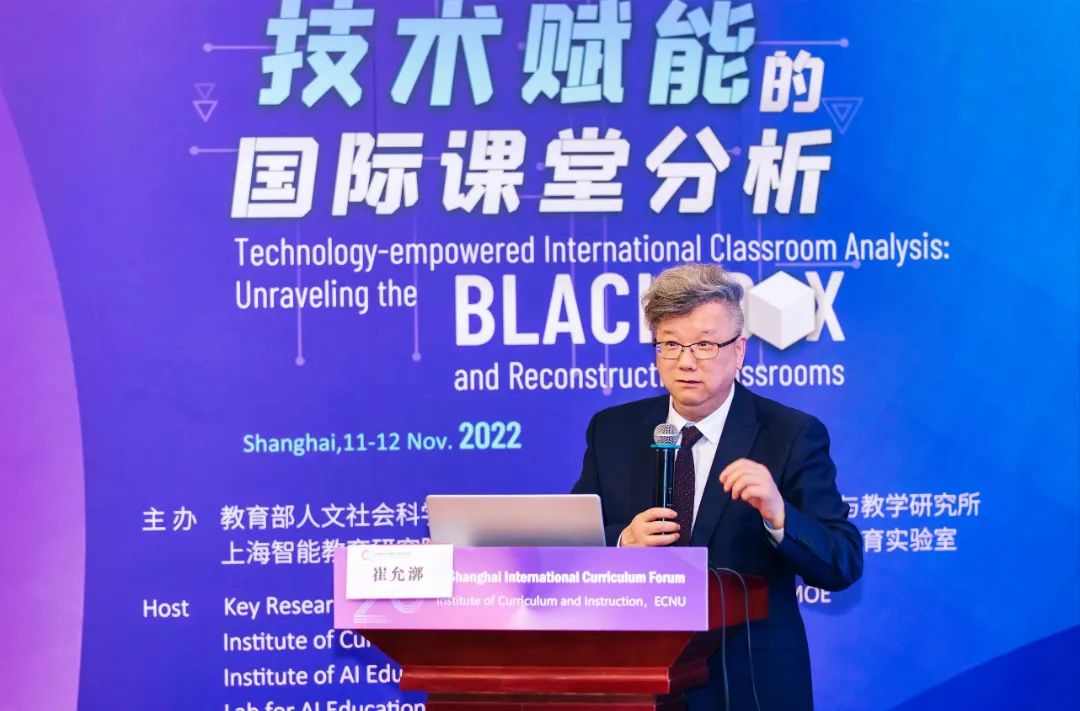ICI 20th Shanghai International Curriculum Forum║ Technology-empowered International Classroom Analysis: Unraveling the Black Box and Reconstructing Classrooms
2022-11-13
From November 11th to 12th, the Institute of Curriculum and Instruction of East China Normal University ( ICI for short ) which is the Ministry of Education's key research base of humanities and social sciences, Shanghai Intelligent Education Research Institute, and the Intelligent Education Laboratory of East China Normal University jointly hosted the 20th Shanghai International Curriculum Forum - Technology-empowered International Classroom Analysis: Unraveling the Black Box and Reconstructing Classrooms. It built a high-quality learning-centered classroom ecology and promotes the successful transformation of future classroom teaching and learning paradigms. The forum attracted more than 50,000 participants to participate online.
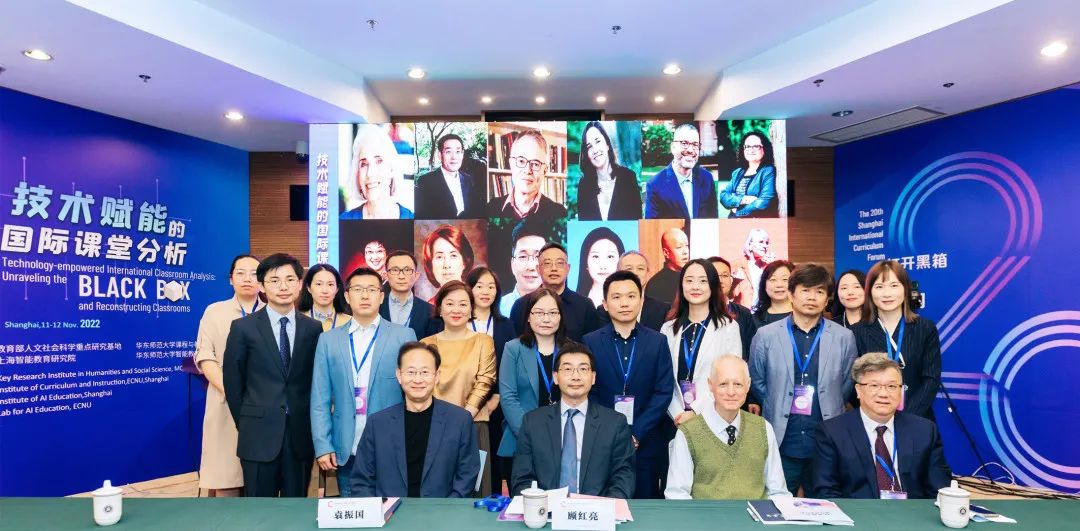
Highlights
Highlight 1 World-Class Research Teams Sharing Global Ideas
The ICI is one of the first and only key research bases in the humanities and social sciences of the Ministry of Education in the field of curriculum and teaching. It has been adhering to the Chinese style curriculum academic and practical innovation, building a high-quality international academic exchange platform for 20 years, and promoting the belief of "bring China’s experience to the world" in the field of curriculum and teaching.

The 20th Shanghai International Curriculum Forum invited top universities and institutions from home and abroad such as UNESCO, Harvard University, Stanford University, Columbia University, University of California, Berkeley, Oxford University, Cambridge University, University of Washington, Beijing University, Hong Kong University, etc. Experts and scholars from around the world conversed about classroom research and instruction transformation.
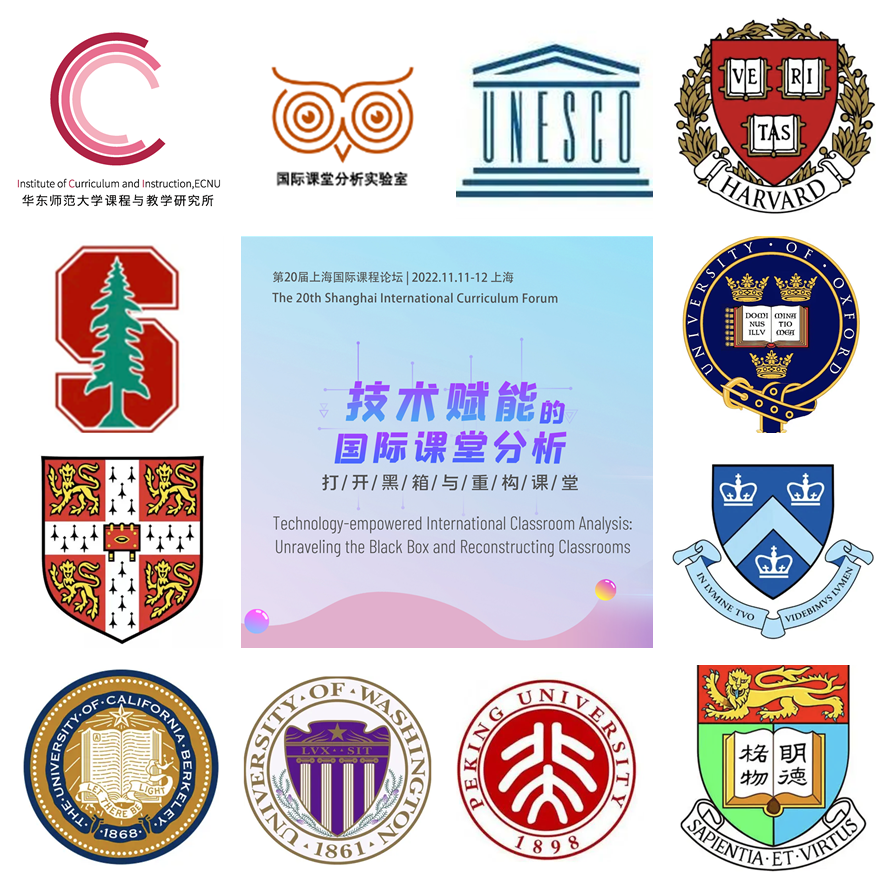
Highlight 2 Chinese-style, Large Scale and Modernized Classroom Research Findings
The classroom analysis and research team of the ICI has established a large-scale and massive classroom multimodal database, including 2 million hours of courses, 60,000 classroom video data, and 1 million teaching plans, covering all subjects in every grades of primary and secondary schools. It has made more than 10 core analysis technology breakthroughs.
At the meeting, Yang Xiaozhe, the executive director of the International Classroom Analysis Laboratory, and Dr. Shi Yuchen, the deputy director, released two important reports for the first time based on existing research results - “Intelligent Analysis of Classroom in Primary and Secondary Schools: From 1 to 100" and " Ten Frontier Issues of International Classroom Analysis".
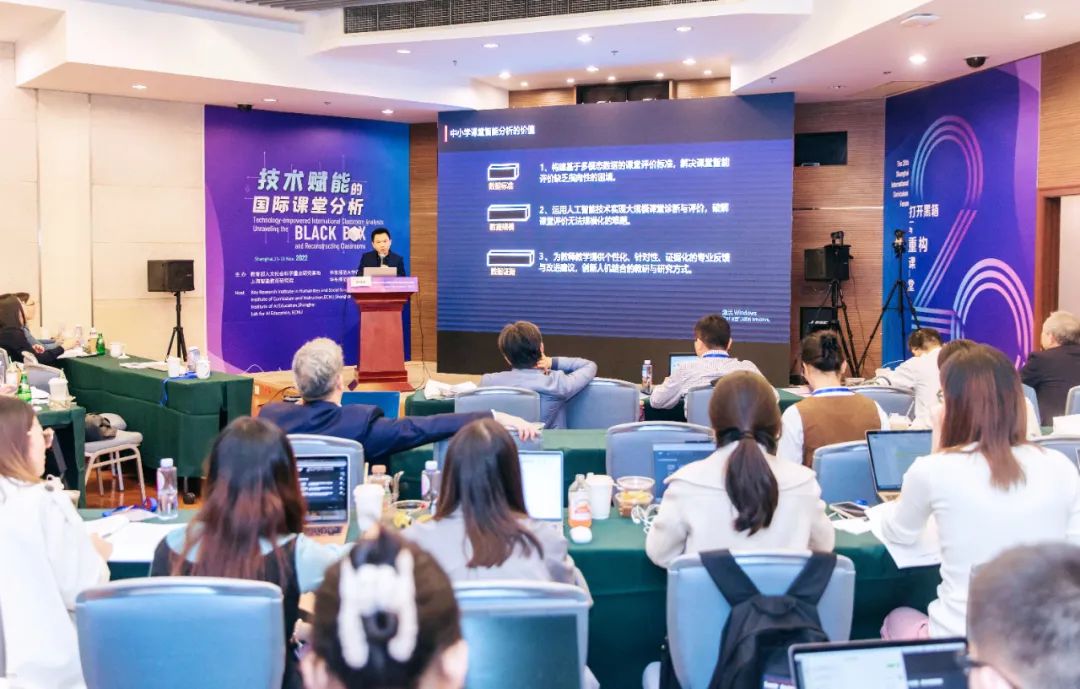
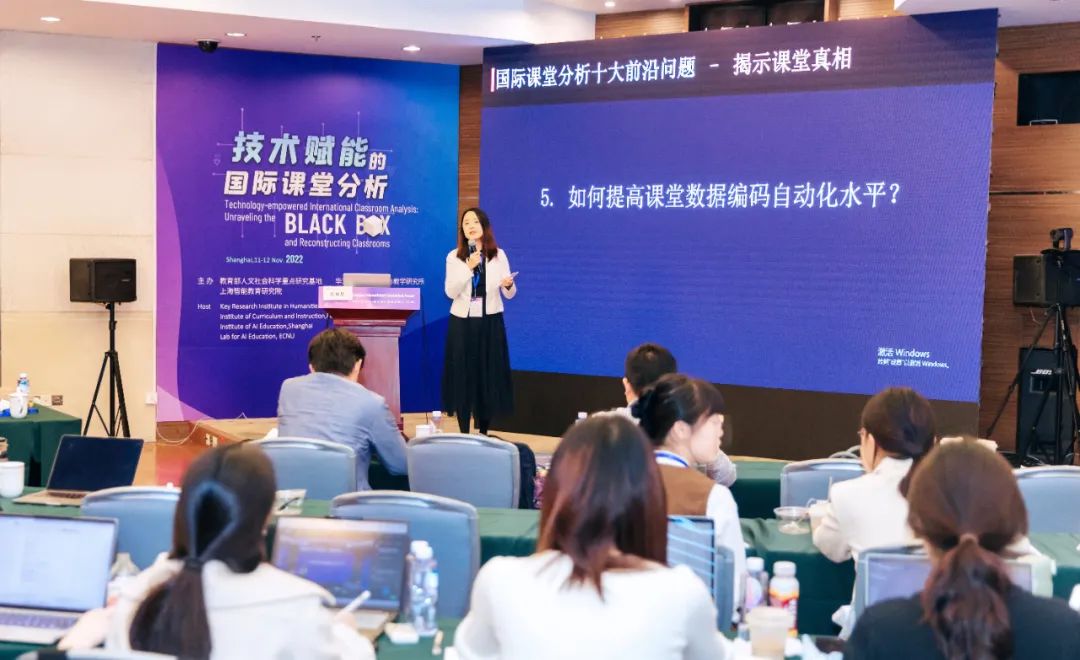
Highlight 3 Initial debut of Innovative Results of Classroom Intelligent Analysis
The International Classroom Analysis Laboratory from ICI, Shanghai Intelligent Education Research Institute, East China Normal University’s Intelligent Education Laboratory and other parties have made breakthroughs in classroom intelligence analysis, and developed the first classroom analysis standard called "multi-modality-evidence-leading" based on international cut-edging knowledge and abundant teaching practices in China. The relevant results were presented for the first time in this forum.
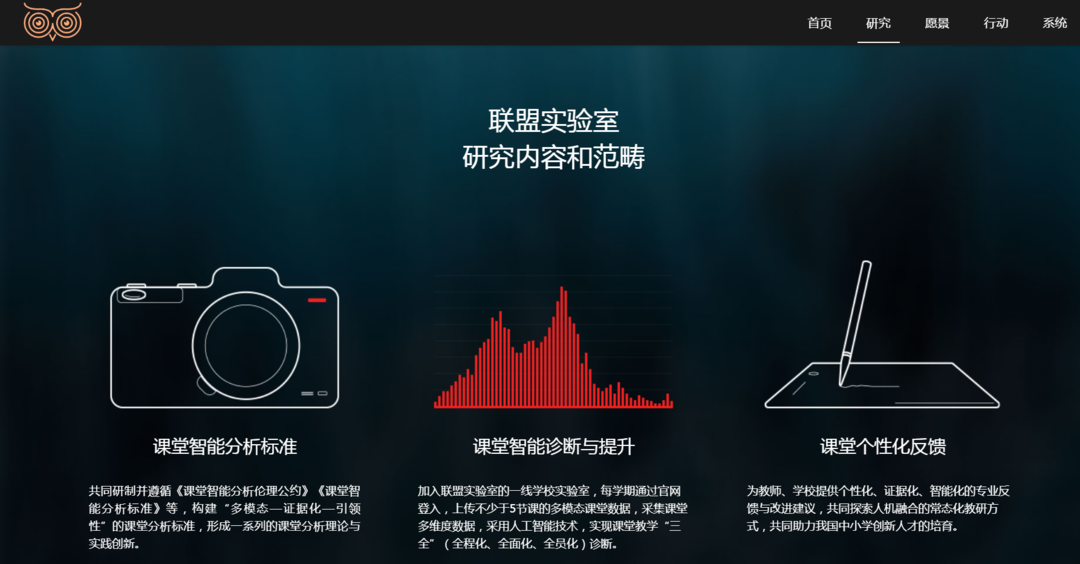
Highlight 4 Exhibiting Classroom Research Paradigm of varieties and Constructing New
This forum embraced the new opportunities and challenges brought about by the transformation of the classroom analysis paradigm, promoted the effective teaching and learning through the innovation of the classroom analysis paradigm, and empowered the high-quality development of fundamental education with digitalization. The forum fully demonstrated the research paradigms of student gesture recognition in the classroom, auto-recognition of classroom type , recognition of classroom speaker , of classroom question, of teacher-student interaction, and analysis of classroom discourse.
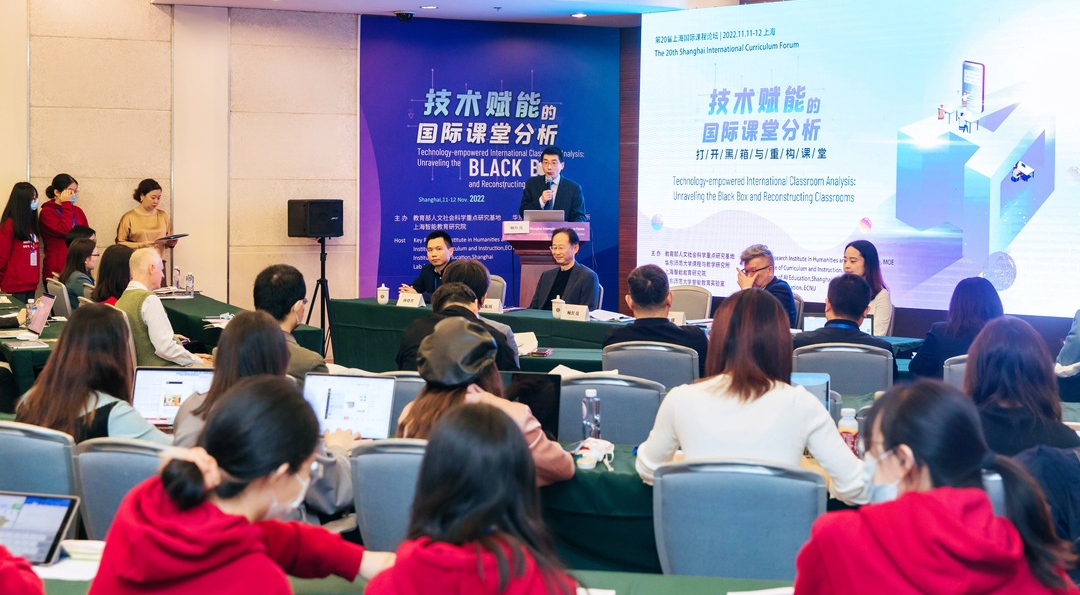
Keynote Reports
Themed " Technology-empowered International Classroom Analysis: Unraveling the Black Box and Reconstructing Classrooms.", 16 domestic and foreign experts shared diverse and profound academic insights based on their own research interests and experiences. Shi Yuchen, Wang Tao, Wang Zhe, and Dr. Zhou Wenye from the ICI served as the moderators.
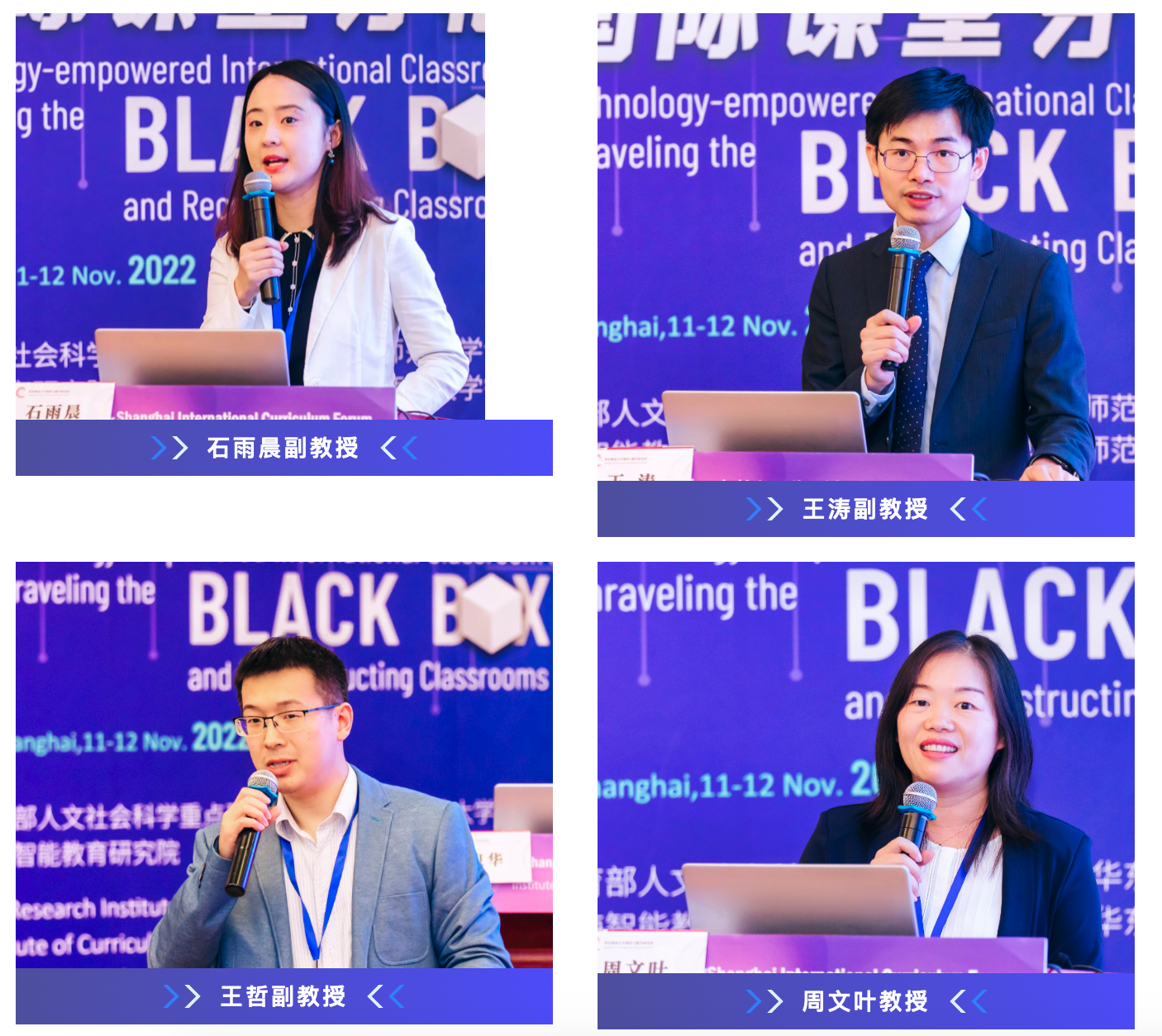
1. Classroom Analysis in the transforming era
Marcia Linn, Evelyn Lois Corey Chair Professor of Instructional Science, School of Education, University of California, Berkeley, made a report titled "Enhancing Teacher Guidance with an Authoring and Customizing Environment to Promote Student Knowledge Integration" , introducing how the teaching system (Authoring and Customizing Environment) that can customize the environment can help teachers identify students who need help most, coordinate students' learning tasks and record homework, customize teaching according to homework records, and provide auto instruction for students' learning of complex science topics. The Curriculum Visualizer is used as an aid, enabling teachers to align their custom activities with knowledge integration pedagogy.
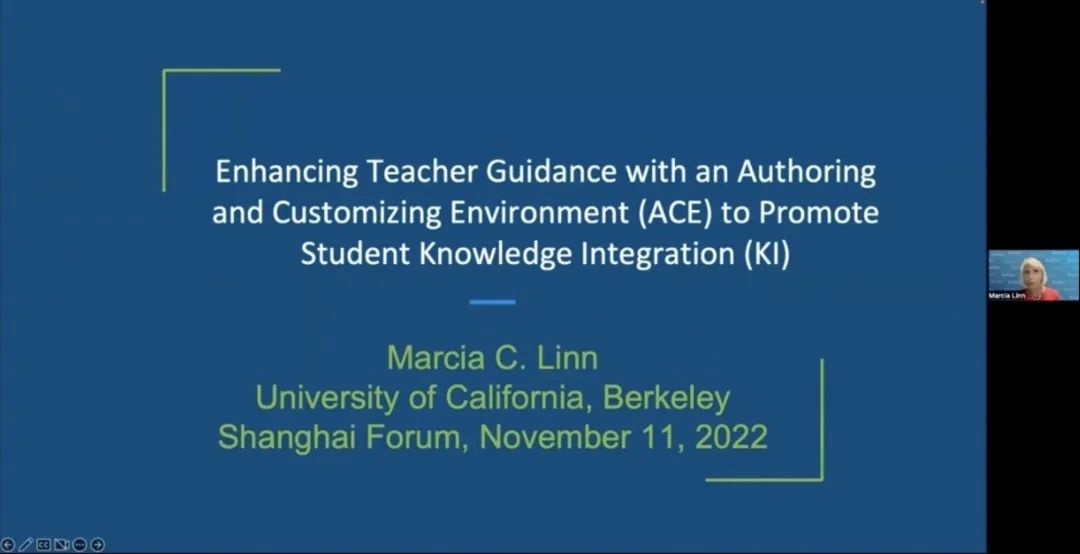
Miao Fengchun, Director of Education Informatization and AI Applied Education Department at UNESCO, made a report entitled "AI Education from a Vision of Digital Humanism", introducing UNESCO's advancement in the field of artificial intelligence and education and the recently released "Artificial Intelligence and Education: A Guide for Education Policy Makers", which emphasizes that the public interest of education and human beings should be fully considered in the process of artificial intelligence trying to change education. In this way, Director Miao Fengchun proposed the development direction of digital humanism, that is, beyond narrow humanism, to reflect on human existence and human value from a broad sense of biocentrism. At the same time, he called on us to re-examine social life and interpersonal relationships in the era of digital technology, build digital technology that serves human value, and promote education to achieve a higher level of digital transformation.
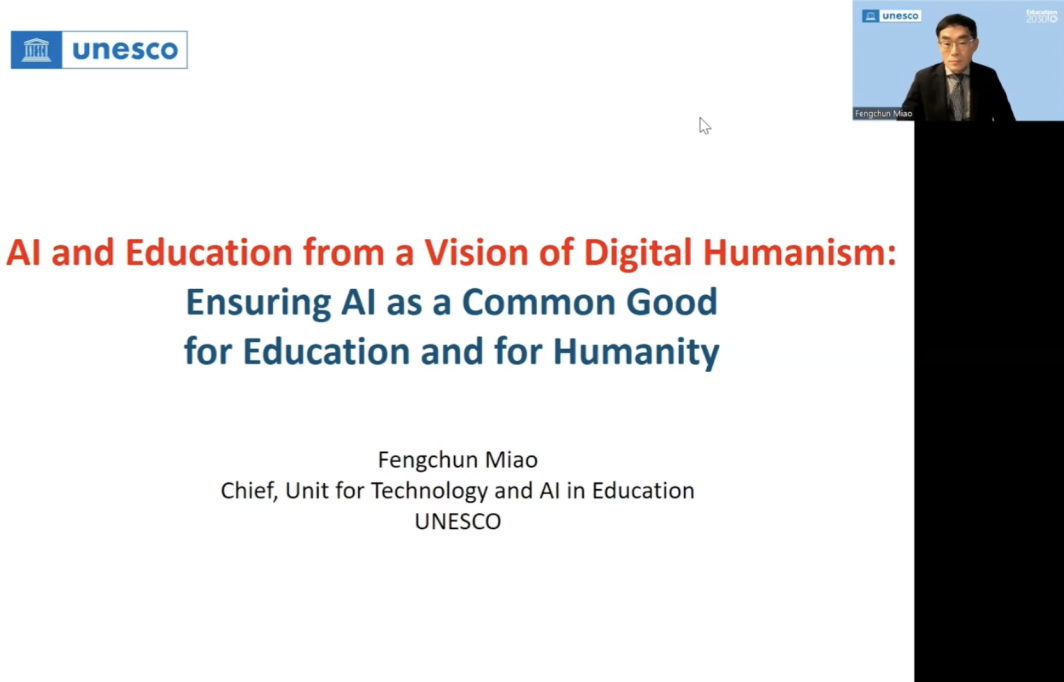
Professor An Guiqing from the ICI gave a report entitled "Classroom Form Analysis and Reconstruction: From the Perspective of Paradigm Transformation". She first conducted a historical review, pointing out that the process of paradigm shift in teaching research is a process of constantly opening the "black box" of the classroom. Classroom observation in the form of records has gradually replaced the questionnaire survey based on the reports of teachers and students, and the classroom research method has shifted from "indirect measurement" to "direct research". Surpassing the cumbersome, expensive, and invasive nature of traditional video research, AI provides technical support for convenient, large-scale, and non-interventional research on the manifestation of classrooms, but also brings new challenges to classroom research. On the basis of constructing analysis models dimensions of classroom modes, the report pointed out that classroom research paradigms, research and analysis methods need to be transformed, and classroom content, activities, and time-space forms need to be reconstructed urgently.
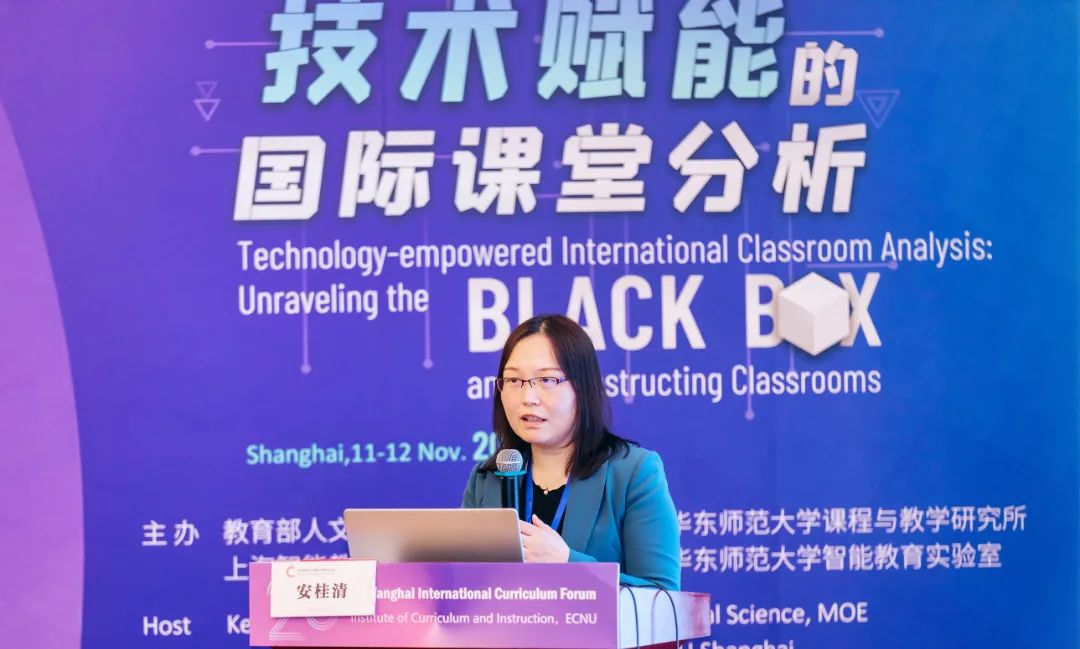
Jonathan Osborne, Kamalachari professor of science education, Graduate School of Education of Stanford University and a chairman of the OECD PISA Examination Science Expert Group, made a keynote report entitled "Science Education in an Age of Misinformation", mainly discussing the question of why the attempts to educate scientifically literate individuals fail, and puts forward two possible causes: first, people cognitively rely on the professional knowledge provided by scientists, but the evaluation criteria of knowledge credibility are still open to debate; second, K-12 education fails to put knowledge and abilities into operation. The report states that not only do we need the knowledge to assess scientific credibility, but we also need to combine the fundamental skills covered by digital literacy with an effective understanding of scientific practice to develop scientifically literate individuals in society.
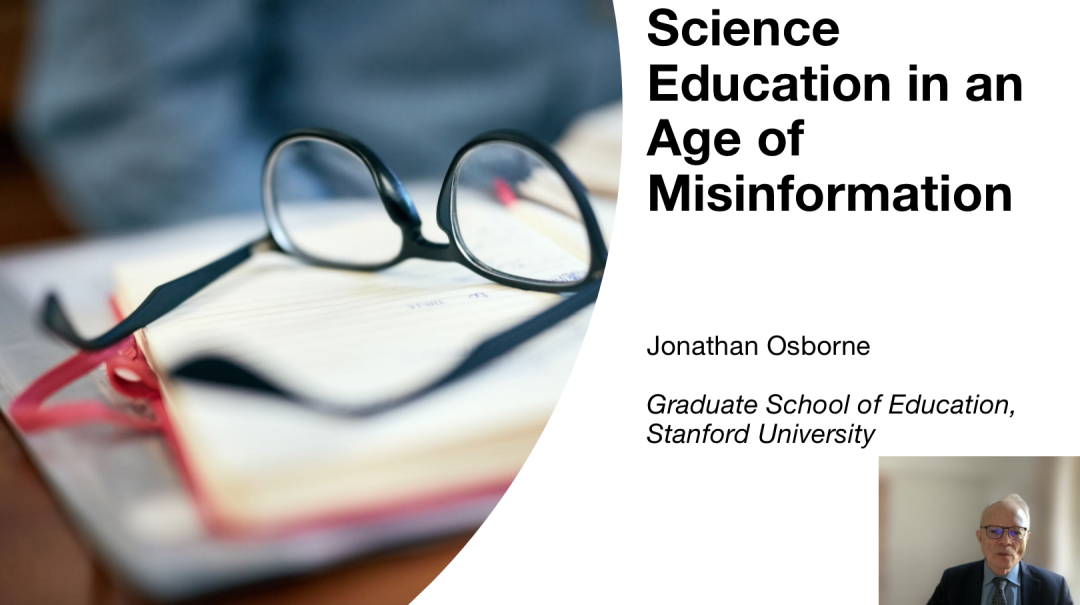
2. The Innovation of Teaching and Learning in the Classrooms
Professor Paola Uccelli from the School of Education of Harvard University in the United States paid special attention to the importance of language development in a report entitled "Affirming and Expanding Students' Voices to Support Learning". She emphasizes the interaction of language capabilities with reading and writing, as well as the relationship with the realization of educational equity. She introduced the concept of Core Academic Language Skills (CALS), which she collaborated with two scholars, Christopher Barr and Emily Phillips Galloway, and the corresponding CALS assessment tools. The concept of core analytical language skills aims to solve the problems of reading comprehension and writing difficulties of adolescents. Through this skill test, we can grasp the differences in reading comprehension levels among students, use language as a scaffold and medium to achieve learning goals, and provide students with more accurate teaching guidance.
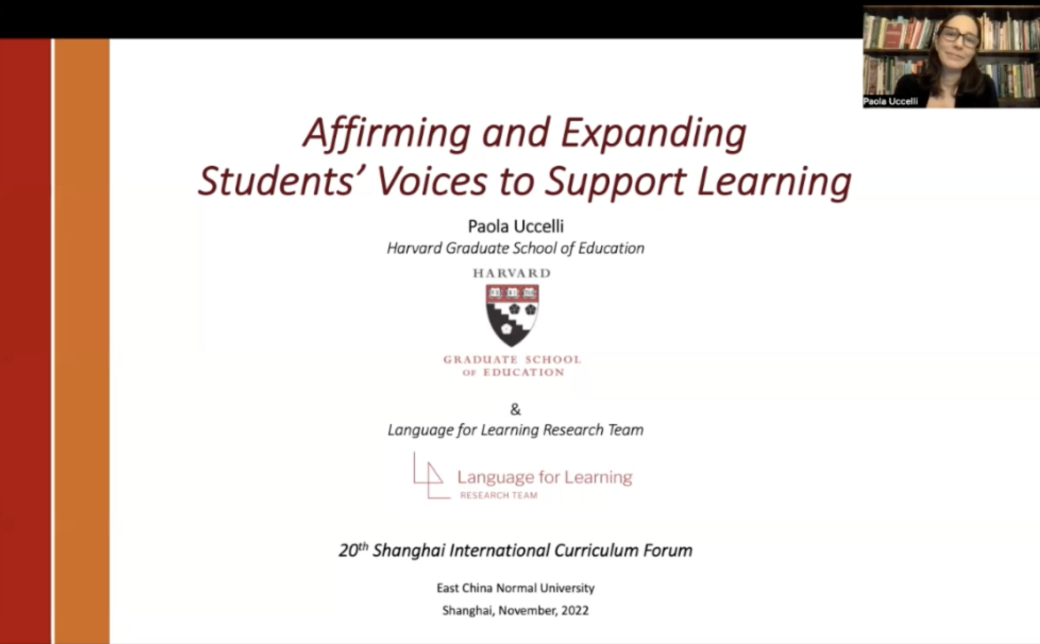
Django Paris, the James A. & Cherry A. Banks Professor of Multicultural Education and director of the Banks Center for Educational Justice in the College of Education at the University of Washington, gave a speech titled "Culturally Sustaining Pedagogies: Centering Communities in a Time of Pandemic, Climate Crisis, and Racial Justice". He takes cultural sustainability as part of school education that implements and promotes linguistic, literacy and cultural diversity with the goal of positive social change and revitalization. In addition, Professor Django Paris also clarified the key characteristics of implementing culturally sustainable instruction and its standards in the curriculum and instruction fields.
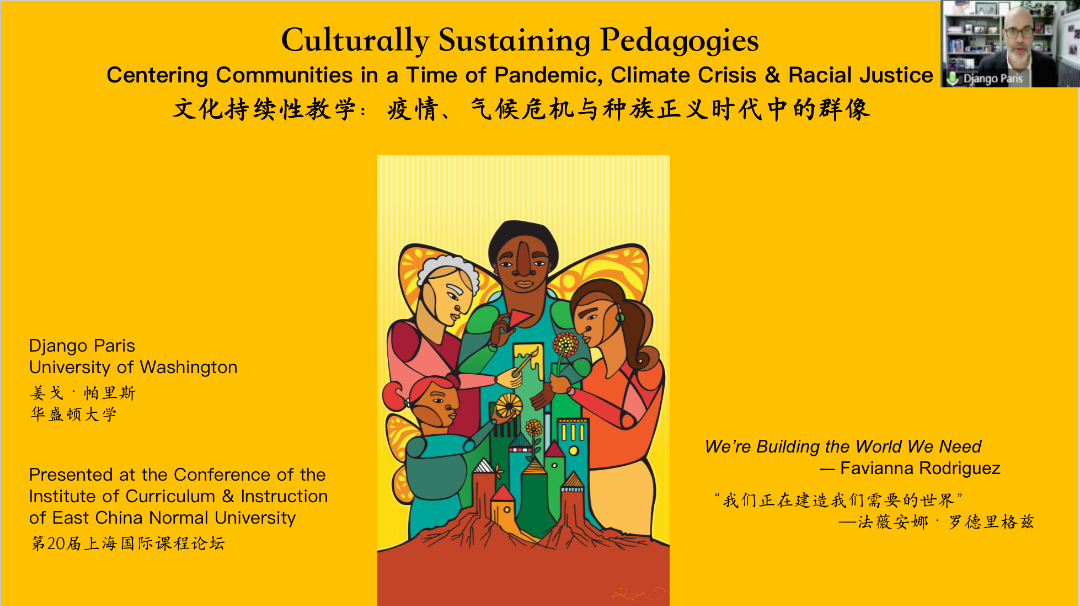
Associate Professor Xiao Sihan, ICI deputy director , gave a report titled "Exploring the “revoice” in Chinese Classrooms". Based on the local situation in China, based on the discourse analysis of two "revoicing" clips presented by a senior teacher in a junior high school in Shanghai in a life science class, he responded to the question of "what can we do when we see excellent foreign experience?" . The report pointed out that the revoicing in Chinese classrooms reflect the teaching ingenuity and wisdom of Chinese teachers, and it is difficult to be completely classified into the discourses studied by O'Connor, Michaels and their followers. Therefore, Chinese classroom researchers should give consideration to both "learning from strengths" and "making up for weaknesses", and pay full attention to the processing and transformation of imported concepts and theories.
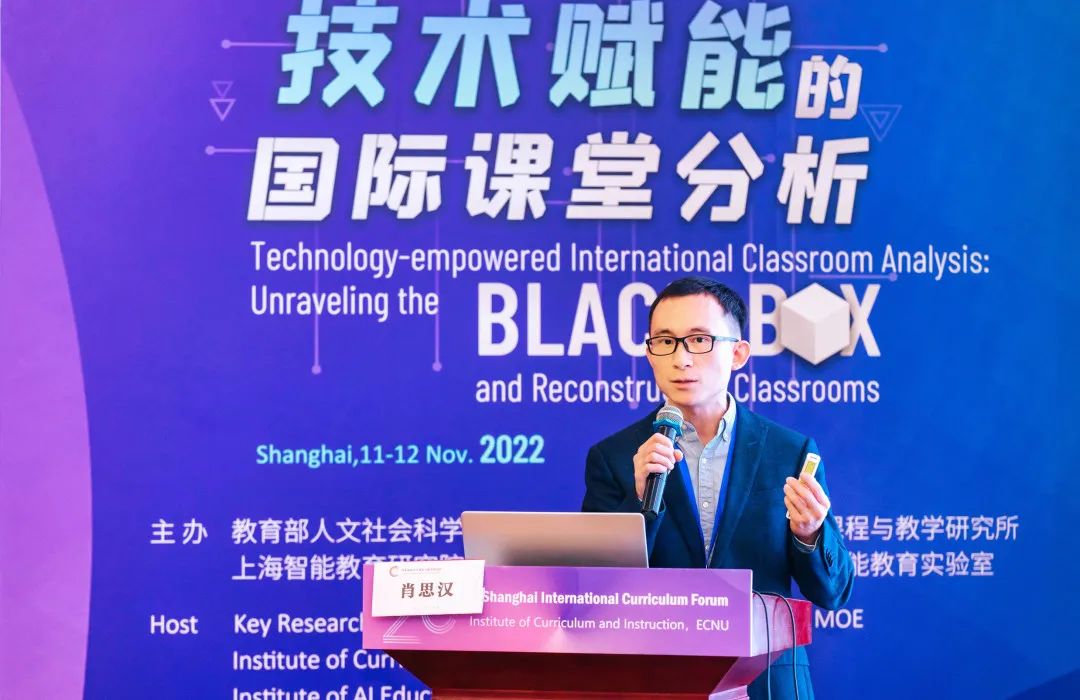
Sibel Erduran, Professor of Science Education and Research Director of the Department of Education at Oxford University, made a presentation titled "Interdisciplinarity for Enhanced Teaching and Learning of Science: Perspectives from School-Based Projects in the United Kingdom". The report pointed out the dilemma of science education at the beginning, that is, science education traditions such as subject-based teaching may become a stumbling block to its innovation, and there are discrepancies between school science teaching and real science practice. In an uncertain future, where interdisciplinary problem solving becomes increasingly important, “21st century skills” such as critical thinking and problem solving become must-haves. In this regard, Professor Sibel Erduran introduced the OARS, SciKids and other projects she implemented, and how these projects optimize science teaching and improve students' scientific skills and literacy.
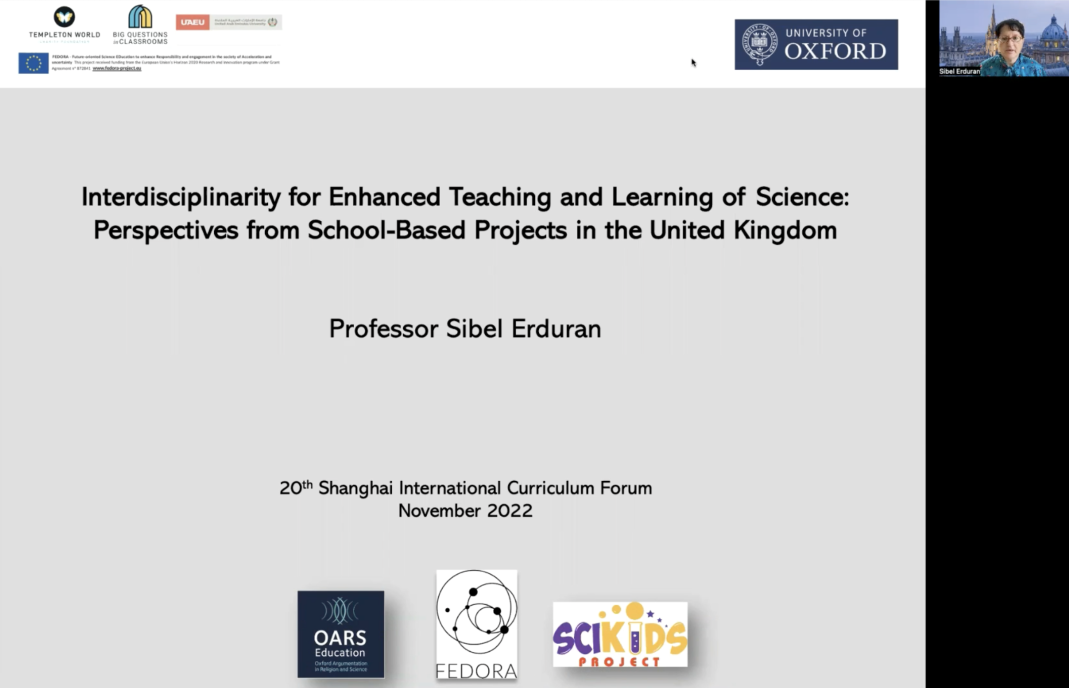
Professor Wang Qiong, director of the National Intelligent Social Governance (Education) Special Experimental Base of Beijing University, took the title of "Conflict Analysis of Human-Computer Cooperation in Classroom Teaching" and directly attacked the real problem of some teachers' resistance to using highly automated teaching tools. From the perspective of the division of labor of human-computer cooperation and work motivation she explores the side effects of such teaching tools and teachers' needs for using such teaching tools. She introduced the four modes of division of labor for human-computer cooperation: expansion, burden reduction, reinforcement, and replacement. She discussed the work motivation and cooperation experience of teachers in human-computer cooperation from the perspectives of control, trust, and responsibility and provides optimization suggestions for highly automatized teaching tools.
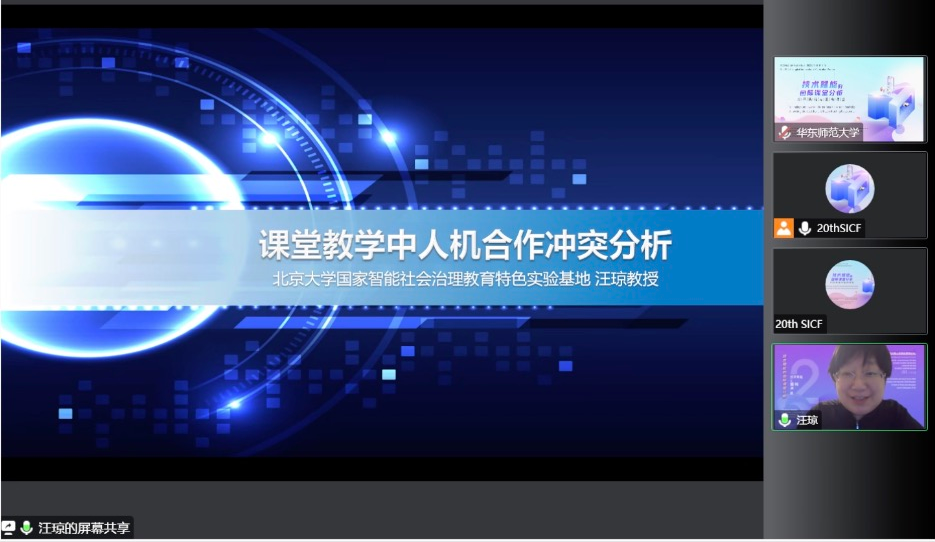
3. Technology Driven Development of Teachers
Christine Howe, professor of education at the University of Cambridge and senior advisor to Lucy Cavendish College, gave a speech entitled "Group Work in Classrooms: Dialogue, Reflection and Positive Learning Outcomes", which focuses on group collaboration activities in the classroom, emphasizing the critical role that group dialogue plays in student learning. Based on the results of more than 30 studies, Professor Christine Howe found that group cooperation without the direct participation of teachers is effective yet condition depended. For example, when the group includes students with different viewpoints, learning will occur, and the differences can optimize students’ conversational forms. It is worth noting that post-group activities can amplify the positive effect of group cooperation. Group members can reflect, evaluate and integrate the ideas received after and during the cooperation.
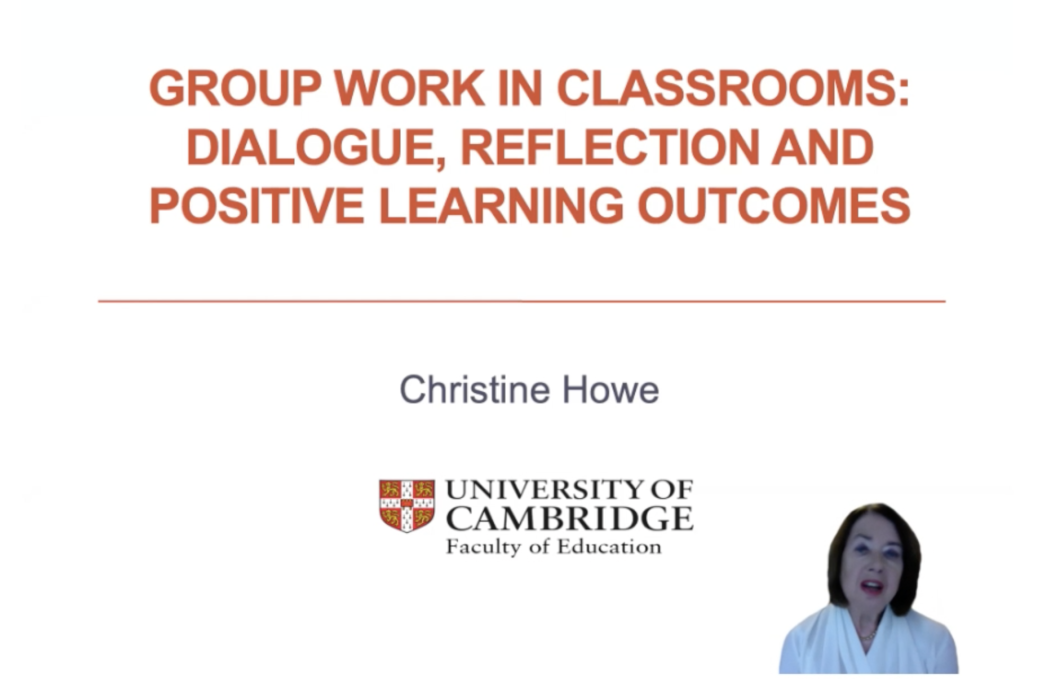
The topic of the report by Associate Professor Chen Gaowei from the Faculty of Education of the University of Hong Kong is "Teacher Professional Development Supported by Visualization and Analysis Technology: Taking Video Data as an Example". He observed that classroom teaching videos have been widely used in teachers' professional development, but teachers' concentration when watching videos and their utilization of videos will be affected by other information in the videos. Therefore, he constructed a video viewing method based on the support of visualization and analysis technology, through the cyclical intervention of "teacher videotaping-research group editing materials-classroom dialogue video analysis and visualization-regular seminar " and classroom discourse analysis tools, and made teachers' reflections on classroom teaching more focused, tracking and improvement more convenient, and comparisons and discussions among teachers more effective.
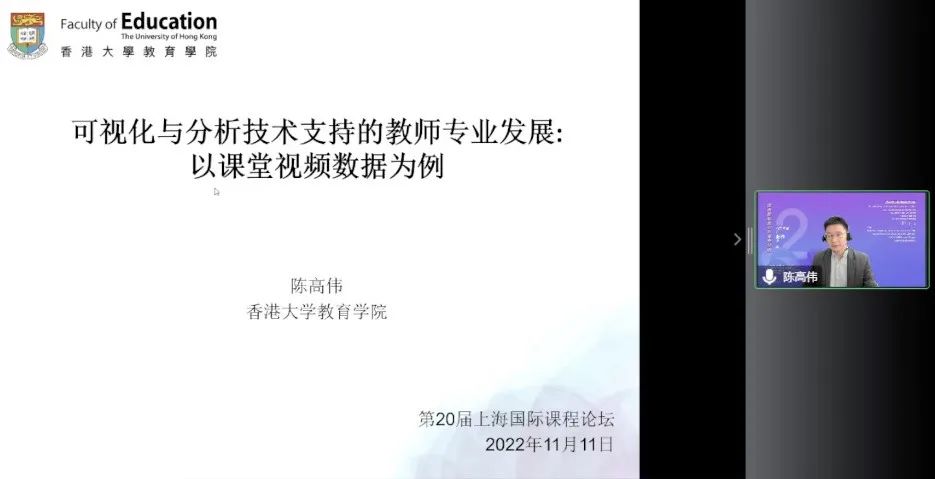
Associate Professor Xu Jinjie from the Institute of International and Comparative Education of Shanghai Normal University, who is also a full-time researcher at the Shanghai TALIS Secretariat/Research Center of the International Teacher Education Center of UNESCO, made a presentation entitled "Teaching and Learning from the Perspective of Courseware: Another Way to Open the Black Box of Classroom Teaching". The courseware is a window to show the teacher's expected design of learning opportunities. The report focuses on the courseware in video research, and presents the quality of learning opportunities in unit teaching design in different countries and regions through courseware. In addition, the report also expounds the methods and techniques of courseware evaluation in video research, with suggestions for improvement of localized courseware evaluation research, such as using educational intelligence to promote courseware evaluation as a means of teaching improvement, drawing lessons from international courseware evaluation methods to improve local research or constructing and developing video research tools adapted to China’s condition.
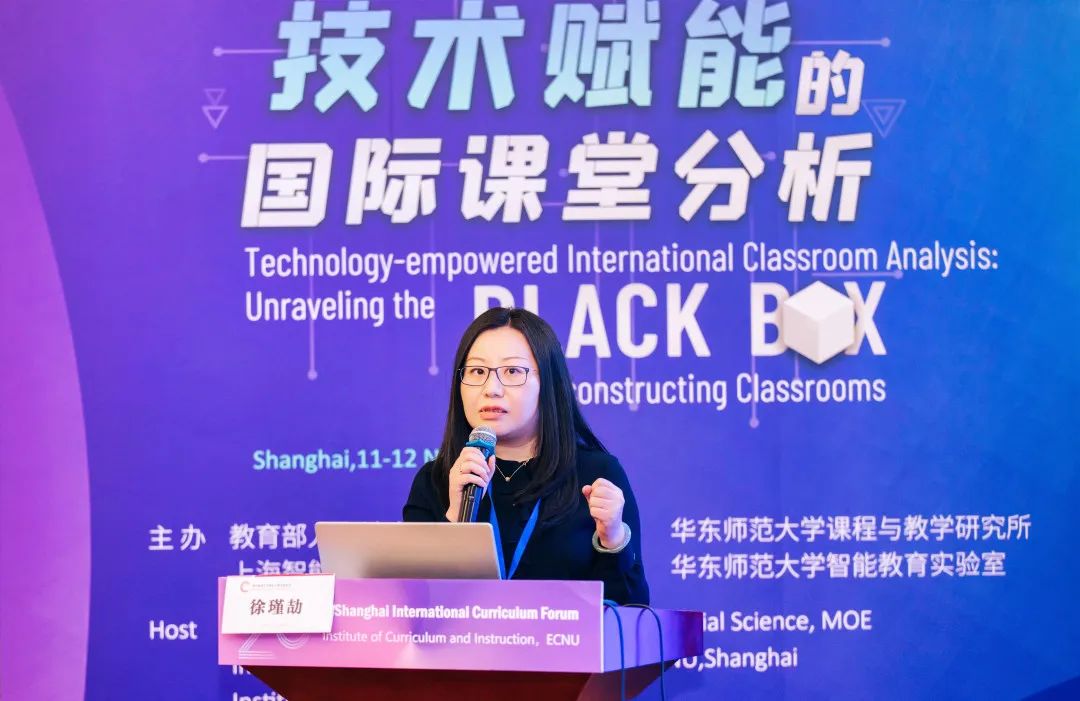
The ICI professor Liu Lianghua took "Classroom Echo and Teachers' Professional Development" as the topic, focusing on classroom echo in a narrow sense, that is, oral behavior in the classroom dialogue, and discussing how to improve teaching effectiveness by instant evaluation. He first proposes that classroom echoes of speaking are the refinement of the IRE or IRF model, including three types of classroom informal formative assessment and associated responses. Next, he focuses on the analysis of the three discourse strategies of classroom echoes: repetition or induction, questioning and solicitation, and supplementation or comment. The transfer from the traditional IRE or IRF mode to "teaching with echo" means that monologue teaching is turning to dialogue teaching and improvisation teaching, and it also means the possibility of teachers' professional development.
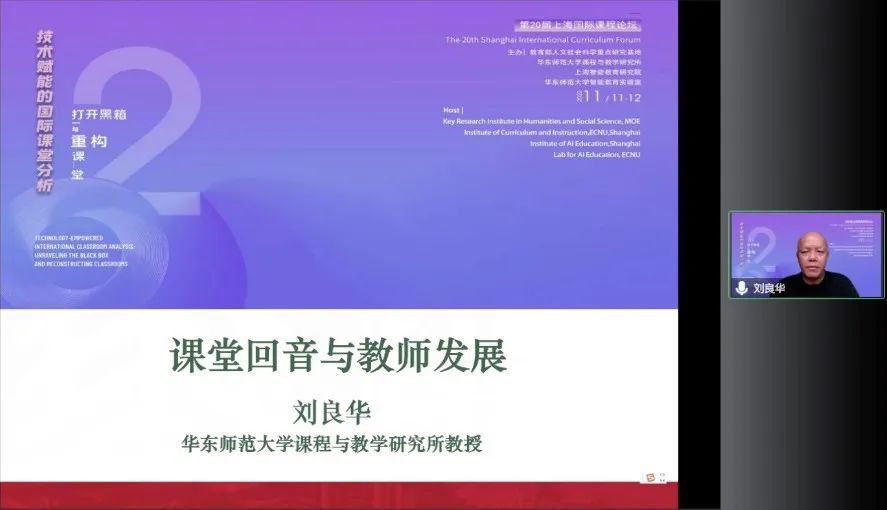
4. The future of Classroom Analysis
Deanna Kuhn, a professor at the Department of Human Development at Teachers College, Columbia University and a well-known developmental psychologist, gave a report titled "A Dialogue-based Argument Approach to Enhancing Higher-order Skills". She believes that the most important thing for educators is to equip the next generation with the ability, willingness and enthusiasm to share ideas, understand different perspectives which can be used as the basis of a global perspective. To this end, Professor Deanna Kuhn developed a teaching method aimed at supporting and encouraging communication among students, and establishing a deep understanding and cooperation model. In the report, she demonstrated this teaching method with a video involving junior high school students in a public school in New York, USA, presented how the research team carried out classroom activities based on the dialogue-based argumentation method, and elucidated the theoretical foundation, guiding principles and steps of the dialogue-based argumentation method.
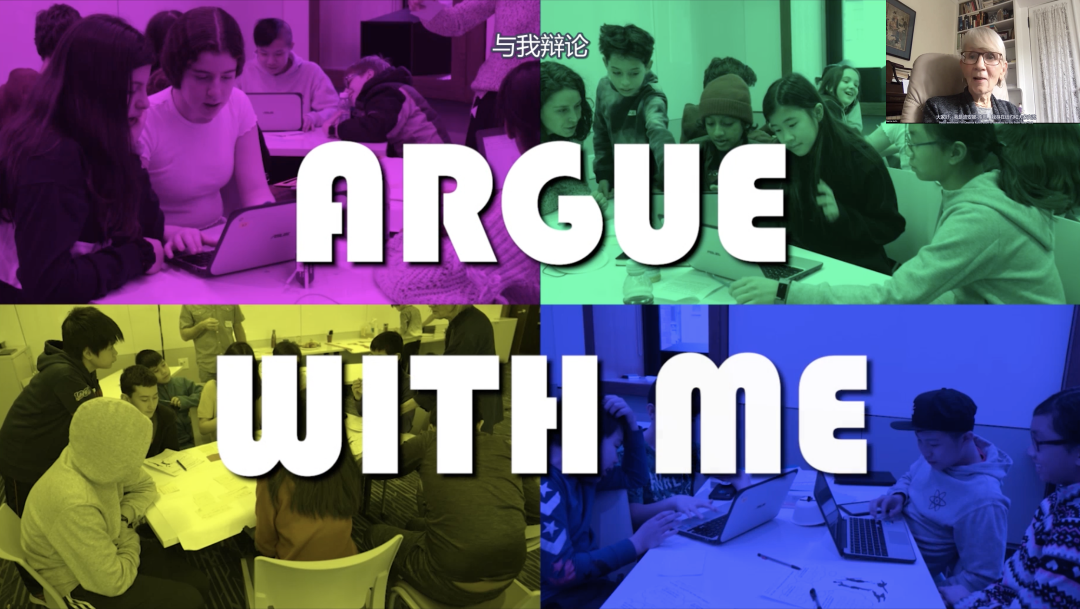
Associate Professor Yang Xiaozhe, executive director of the International Classroom Analysis Laboratory of the ICI, gave a report titled "Intelligent Analysis of Classrooms in Primary and Secondary Schools: From 1 to 100". He first highlights its values:
First, build classroom evaluation criteria based on multimodal data;
Second, use artificial intelligence technology to realize large-scale classroom diagnosis;
Third, provide teachers with personalized, targeted and evidence-based professional feedback and improvement suggestions.
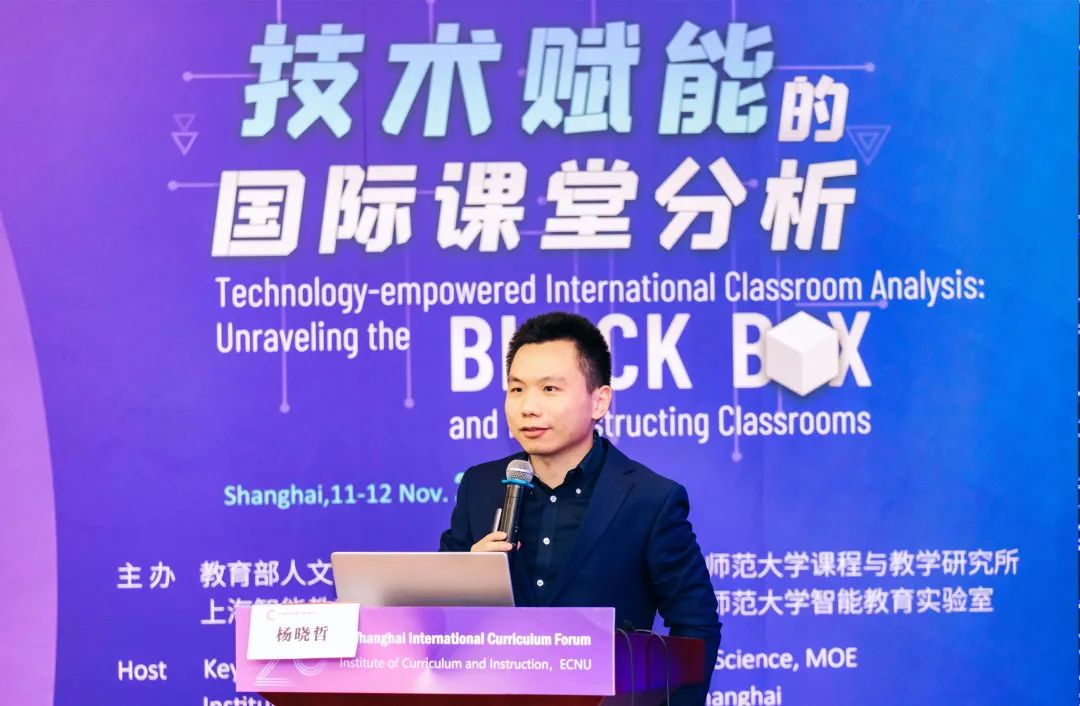
Associate Professor Shi Yuchen, deputy director of the International Classroom Analysis Laboratory of East China Normal University, made a report on "Ten Frontier Issues in International Classroom Analysis". Based on a large amount of literature review and justifications by domestic and foreign experts, the report sorts out the frontier issues that are most concerned and need to be solved in the field of classroom analysis in the world from three dimensions and multiple points.
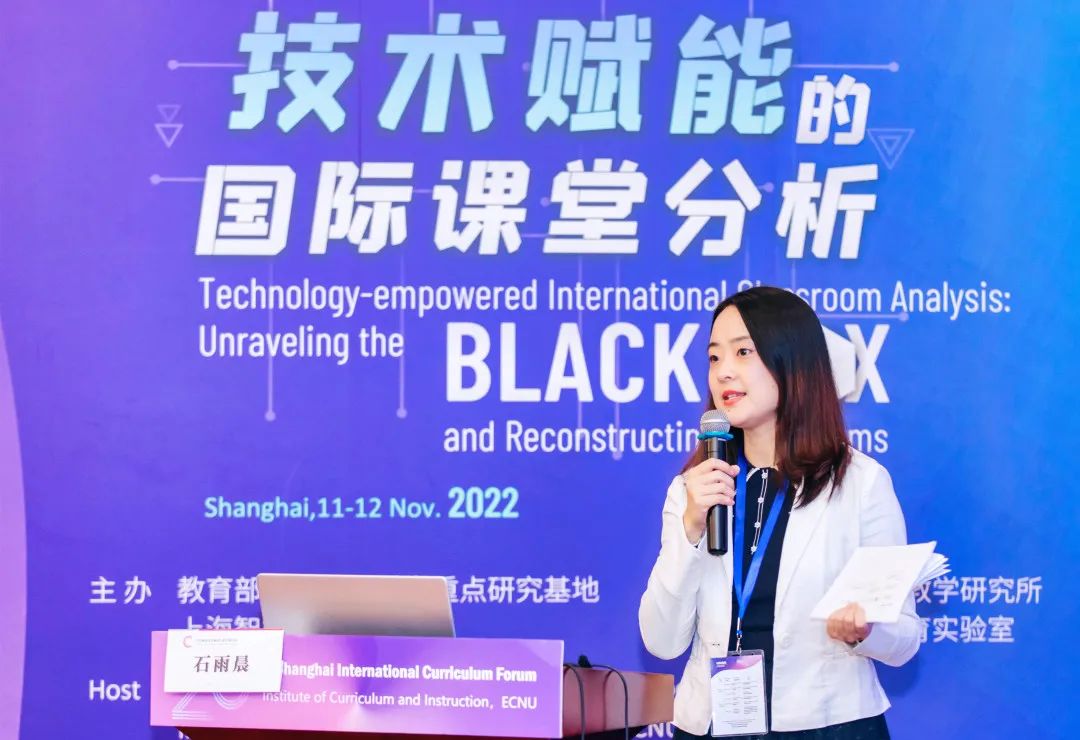
Finally, Professor Cui Yunhuo, Director of the ICI, gave a concluding speech on the contents of the reports of top experts at home and abroad. He selected the three keywords - "classroom", "analysis" and "technology" - to summarize the report topics of 15 experts, focused on the concept of "classroom" ,and shared with audiences "Me and the Classroom: A story of centuries".
